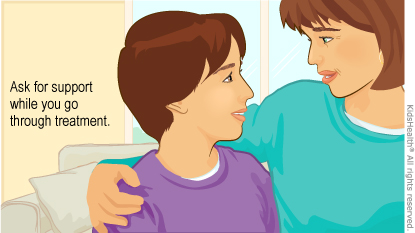People with binge eating disorder regularly eat large amounts of food even when they're not hungry (binge eat). They feel out of control and upset by the behavior. Treatment for binge eating disorder can help you have a healthy weight, develop healthy habits, and change the way you think about food and your body.


Follow the care team's recommendations for:
Practice healthy eating habits by:
Help your overall well-being by:

You:

You are thinking about or planning to end your life. You can also call or text the National Suicide Prevention Lifeline at 988.

What causes binge eating disorder? The exact cause of binge eating disorder isn't clear. It probably happens from a combination of a genetic (inherited) tendency, family eating habits, emotions, and eating behavior like skipping meals. Some people use food to soothe themselves or cope with difficult feelings.
What are the symptoms of binge eating disorder? Binge eating disorder is when a person regularly eats a lot of food (more than what's needed) in a short time. They feel like they can't stop eating, even after they're full. Many people who binge eat are overweight. But those at a healthy weight can also have a binge eating disorder. People with binge eating disorder usually are unhappy about their weight and often feel depressed.
Someone who's binge eating might:
How is binge eating disorder treated? Binge eating is treated by a care team of specialists that includes doctors, behavioral health providers, and a dietitian. These experts work together to monitor the person's medical health, provide counseling, and make dietary recommendations.
The doctor might prescribe medicine to treat binge eating, anxiety, depression, or other mental health concerns.
Some people can be treated at home with close follow-up with the care team. Others may go to a special program during the day to get help. Some people need to stay in the hospital to make sure they get the treatment they need.